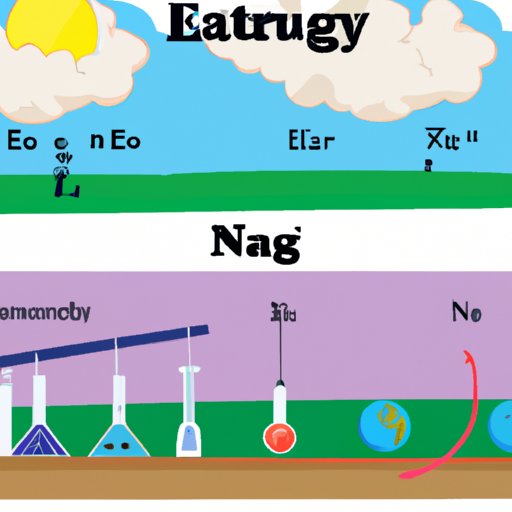Introduction
Natural science is an area of knowledge that deals with the study of the physical world and its phenomena. The field of natural science covers a wide variety of disciplines, including physics, chemistry, biology, earth science, and astronomy. Each of these branches of natural science has unique characteristics and contributions to our understanding of the physical world.
Major Branches of Natural Science
Physics is a branch of natural science that studies matter, energy, and the interactions between them. It is concerned with the behavior of objects in space and time, as well as the fundamental laws that govern them. Examples of topics studied in physics include mechanics, thermodynamics, optics, electricity, magnetism, and quantum theory.
Chemistry is the branch of natural science that investigates the composition, structure, and properties of substances and the changes they undergo. It is concerned with the study of atoms and molecules, as well as their interactions and reactions. Examples of topics studied in chemistry include organic chemistry, biochemistry, inorganic chemistry, and analytical chemistry.
Biology is the branch of natural science that studies living organisms and their environment. It is concerned with the structure, function, growth, origin, evolution, and distribution of living things. Examples of topics studied in biology include anatomy, physiology, genetics, ecology, and evolution.
Earth science is the branch of natural science that studies the planet Earth and its atmosphere. It is concerned with the processes and patterns that shape the planet, as well as the interactions between the biosphere, lithosphere, hydrosphere, and atmosphere. Examples of topics studied in earth science include geology, meteorology, oceanography, and hydrology.
Astronomy is the branch of natural science that studies the universe beyond Earth. It is concerned with the formation, evolution, and structure of galaxies, stars, planets, and other celestial bodies. Examples of topics studied in astronomy include cosmology, astrobiology, stellar evolution, and planetary science.

Effects of Natural Science on Our Lives
The advances made in the various branches of natural science have had a profound impact on our lives. From medical treatments to transportation systems, the application of scientific knowledge has revolutionized the way we live. However, there are also potential negative impacts that should be considered when assessing the effects of natural science on our lives.
One of the primary benefits of natural science is its ability to improve the quality of life for people around the world. For instance, medical research has led to improved treatments and cures for many diseases and illnesses. In addition, technological advancements have enabled us to make more efficient use of resources, resulting in a higher standard of living for many people.
On the other hand, the misuse of scientific knowledge can have serious consequences. For example, environmental pollution caused by industrial activities has caused widespread damage to ecosystems and human health. In addition, the use of nuclear weapons has resulted in devastating consequences for both humans and the environment.
Interconnection of Natural Science
The various branches of natural science are interconnected in many ways. For example, physics and chemistry are closely related, as they both deal with the properties and behavior of matter and energy. Similarly, biology and earth science are connected, as they both study the interactions between living organisms and their environment.
In addition, there are many examples of how different branches of natural science interact with each other. For instance, the study of climate change involves the integration of biological, chemical, and physical processes. Similarly, the study of astronomy relies heavily on the principles of physics and mathematics.
Conclusion
In conclusion, the field of natural science encompasses a wide range of disciplines, including physics, chemistry, biology, earth science, and astronomy. Each of these branches of natural science plays an important role in our understanding of the physical world. Furthermore, the various branches of natural science are interconnected, making it essential to understand the relationships between them.
The advances made in natural science have had a significant impact on our lives, both positive and negative. Therefore, it is important to recognize the importance of natural science and its potential for both good and bad. Understanding the different branches of natural science is essential for making informed decisions about the future of our planet.
(Note: Is this article not meeting your expectations? Do you have knowledge or insights to share? Unlock new opportunities and expand your reach by joining our authors team. Click Registration to join us and share your expertise with our readers.)
